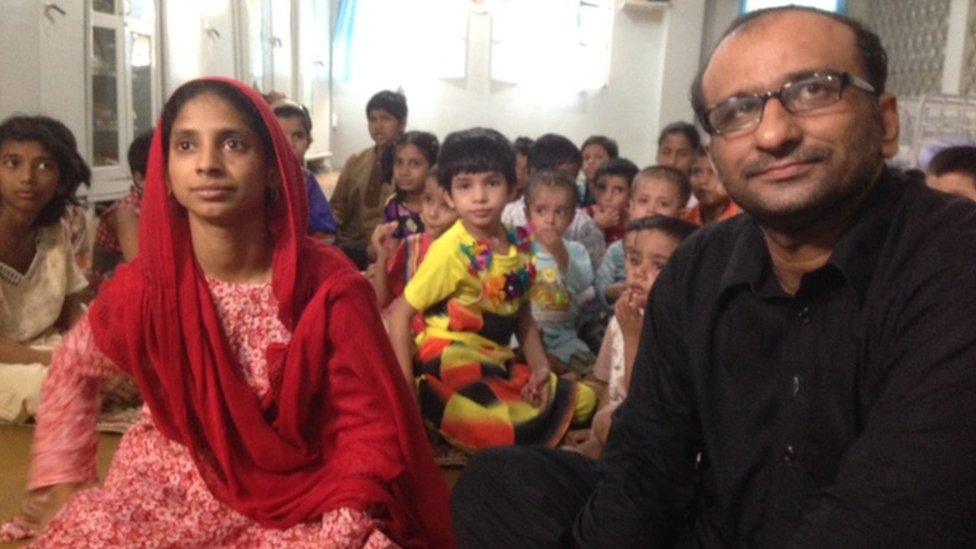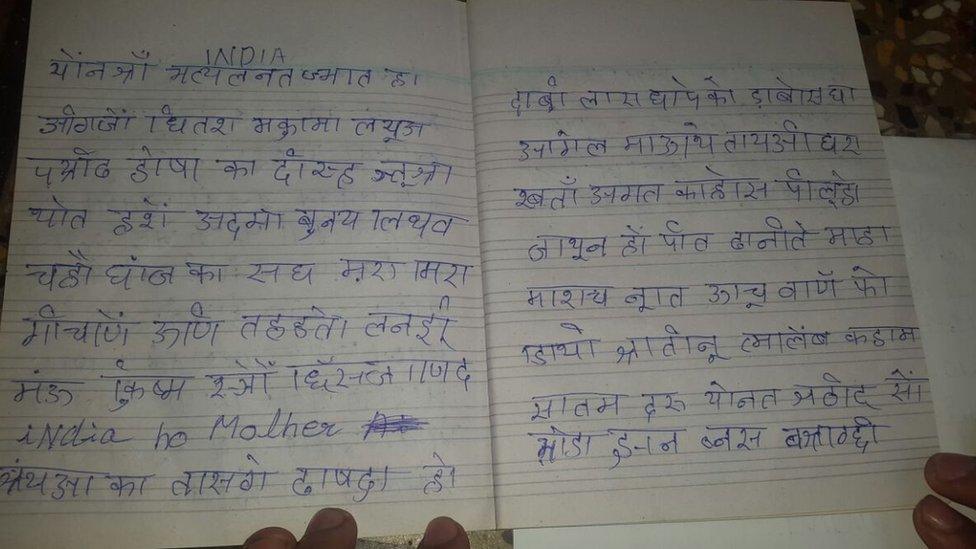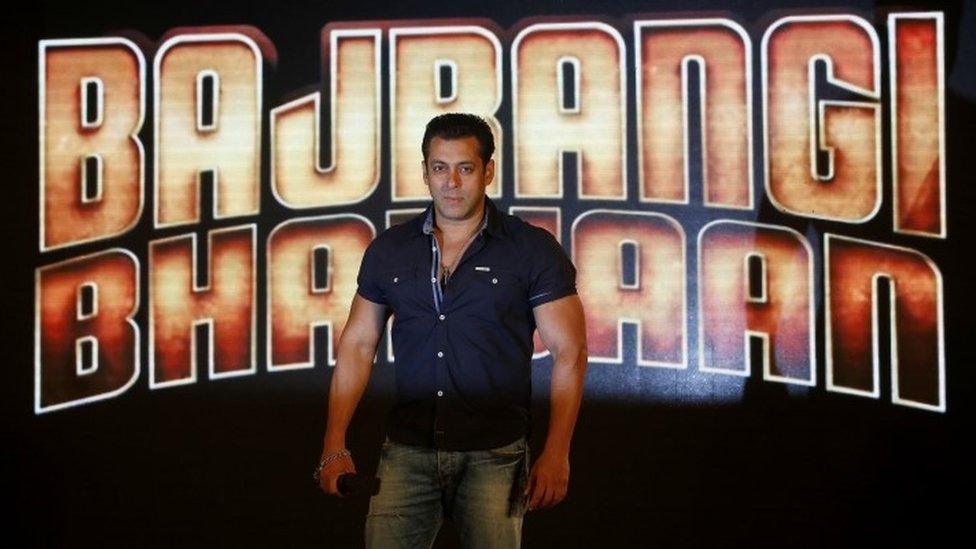New clues in mystery girl found in Pakistan
- Published
Faisal Edhi tells Geeta's story
The mystery of a girl found on the Pakistani side of the Pakistan-India border near the eastern city of Lahore more than a decade ago may soon be solved.
The girl, who appeared to be about 11 at the time, has speech and hearing impairments.
She was unable to provide a name, address or any documentation to the Pakistani border guards who found her. She was thought to be from India, but it was unclear how she ended up across the border.
But now, there is fresh hope after India accepted that the girl, named in Pakistan as Geeta, is in fact Indian and said that she will be brought back home soon.
"We will bring Geeta back to India. This requires some formalities which we will complete," Indian Foreign Minister Sushma Swaraj said in a tweet on Tuesday.
It came hours after Indian High Commissioner TCA Raghavan met Geeta at a shelter run by the Edhi Foundation in Karachi.
"Our High Commissioner believes that Geeta is an Indian," said Ms Swaraj.
It is the first time India has recognised her Indian nationality.
Mysterious language
When Pakistani border guards found Geeta, they did not know what to do with her.
So, they brought her to another Edhi orphanage in Lahore to see if they could help her get back to her family.

Faisal Edhi (right) and his mother have looked after Geeta in an orphanage
"It was done on humanitarian grounds. The fear was that had she been handed over to the police, she would have languished in some Pakistani jail for the rest of her life," says Faisal Edhi, son of Abdul Sattar Edhi, Pakistan's most celebrated charity worker. "So, my mother took her in."
Bilquis Edhi, the wife of Abdul Sattar Edhi, brought the girl to the Edhi Shelter Home in Karachi. When it became clear that the girl was Hindu, she was given the name Geeta.
A small prayer room was set up for her, so she could practice her religion inside the home. That's where Geeta has spent more than a decade, looking after abandoned children and helping out as a staff member of the charity.
But while she appeared to adjust well to her adopted surroundings, she always yearned to go back home to her family and her village.

Some say Geeta writes in a script from the remote tribal belt of South Jharkand in India
Geeta, now about 22, does not really know sign language, but tries to communicate through a combination of hand gestures and facial expressions. She writes a diary in a script that is not understood in Pakistan.
"On the map of India, she excitedly points to the state of Jharkhand," says Faisal Edhi. He's been told that the language script Geeta writes in from the remote tribal belt in South Jharkand. He has shared samples of her writing with the Indian government and contacts in India.
Geeta's ordeal was first reported in Pakistani newspapers a few years ago. It was then widely picked up by the Indian media. According to Faisal Edhi, it even prompted a visit by an Indian diplomat, who promised to locate her family and village. But Mr Edhi never heard from the Indian government again.
More recently, her case has come under the spotlight after the roaring success of the Bollywood blockbuster Bajrangi Bhaijaan.
The film is about a little Pakistani girl who strays into India and is then helped by Bajrangi Bhaijaan, the character played by actor Salman Khan, to take her home to her family.

A new film starring Salman Khan has reignited interested in Geeta's story
The similarities between the real and the fictional stories appear striking.
Faisal Edhi suspects that the Bollywood film was inspired by Geeta's story. He laments: "Those who have gone on to make billions from the film should have spared a thought for this girl."
Nonetheless, indirectly or even unintentionally, the film appears to have helped Geeta's case.